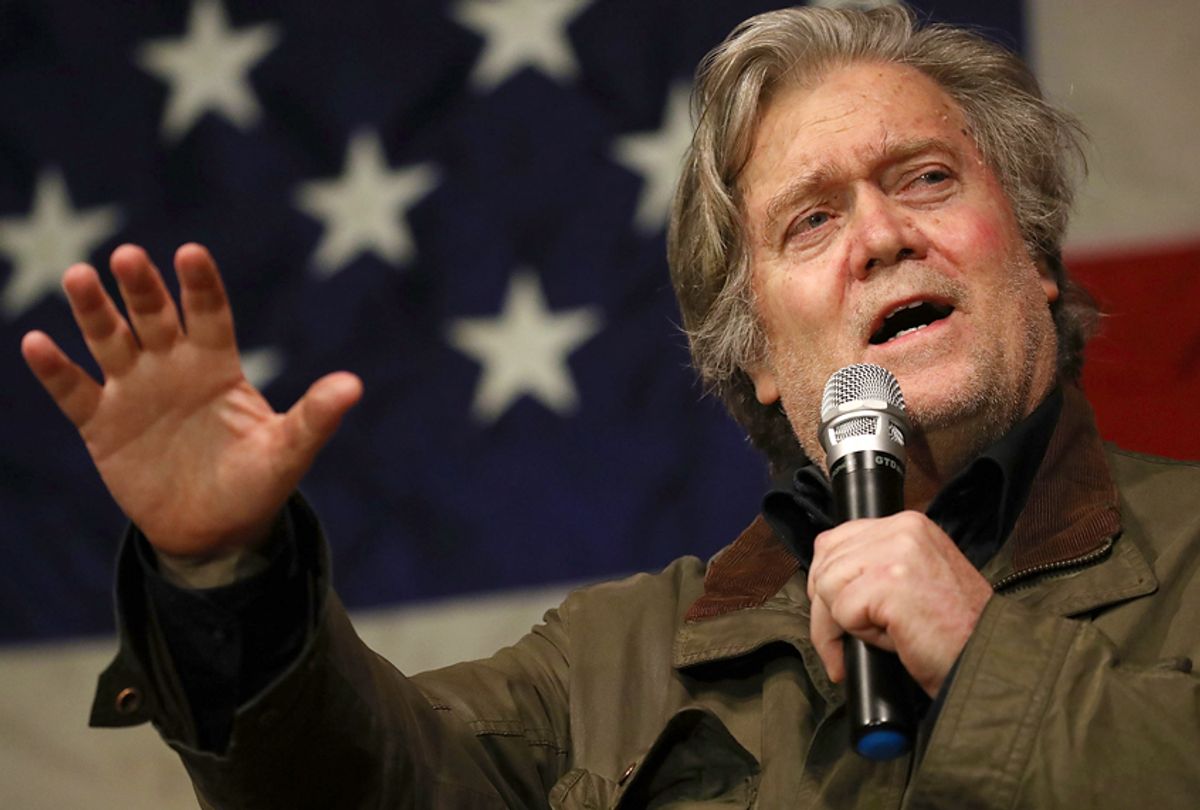The New York Times is reporting that Steve Bannon, former Chief Strategist for President Donald Trump, will step down from his position as Breitbart News' executive chairperson, according to a statement from the company. Bannon, who resigned from his position in the Trump administration in August under reported duress, had been with the media company since before its launch in 2007, first as a board member and then as executive chairperson following the 2012 death of founder Andrew Breitbart.
In the Breitbart statement, chief executive Larry Solov calls Bannon "a valued part of our legacy" and the company states it will work with Bannon on "a smooth transition." Bannon is quoted as saying he is "proud of what the Breitbart team has accomplished in so short a period of time in building out a world-class news platform."
It marks perhaps the end of what has been a precipitous fall from conservative grace for the irascible and combative Bannon. Hailed during the 2016 Trump campaign as a prophet of the right and the brains behind the candidate's populist brawn by pundits on the right and left alike, Bannon was considered to be a key player in the future of the Republican party, thanks in large part to the reach of Breitbart.
There, Bannon had cultivated an audience of hardline, sometimes alt-right followers thanks to a combination of engrossing headlines, breathless anti-Clinton coverage, well-constructed culture-war attacks and, to some eyes, barely disguised white-nationalist themes. This direction for the publication, while somewhat at odds with its founder's vision for the site, seemed to dovetail with Bannon's own philosophies.
As successful as he was as a conservative media mogul, he was less so as a presidential advisor. A key player in the internal White House battles of early 2017, Bannon would eventually find himself distanced from the president he had helped elect through canny messaging and sharp campaign strategy, largely in part because of the toxic effects of characteristic combativeness. Eventually, he would be forced to resign, but would commit to forwarding the Trump agenda as he resumed his duties as executive chair at Breitbart.
This already strained relationship between the Trump White House and Bannon exploded months later when he was quoted by author Michael Wolff in the new book "Fire and Fury" as saying that meetings between Donald Trump Jr., the president's son, and a lawyer possibly attached to the Russian government during the 2016 presidential campaign were "treasonous." The administration and the president himself then turned their guns on the former key advisor. "Steve Bannon has nothing to do with me or my Presidency," said Trump in an official White House statement. "When he was fired, he not only lost his job, he lost his mind."
Subsequently, conservative outlets from Fox News to Infowars assailed Bannon for what was framed as a betrayal. He offered a meek apology soon after. Rebekah Mercer, a key source of funding for Breitbart, has cut ties with both the outlet and Bannon. Last Thursday, White House Press Secretary Sarah Huckabee Sanders said during a press conference that the site should "should look at and consider" firing the man her boss now refers to as "Sloppy Steve." It seems that something very much like that has come to pass.



Shares